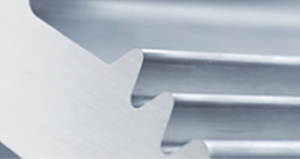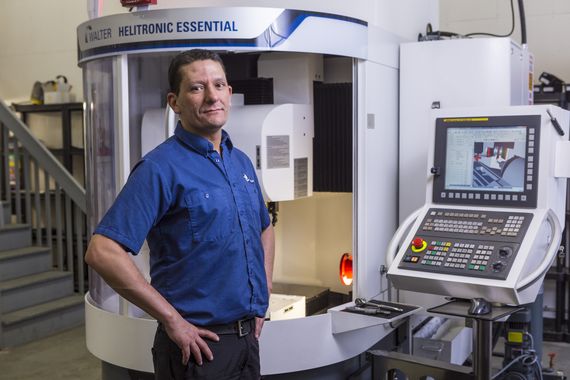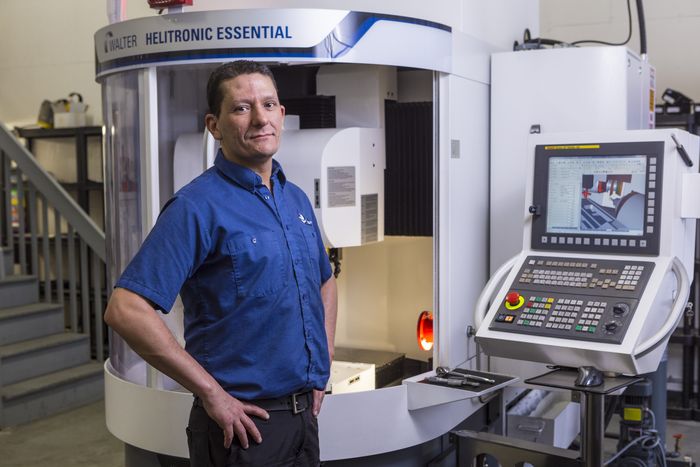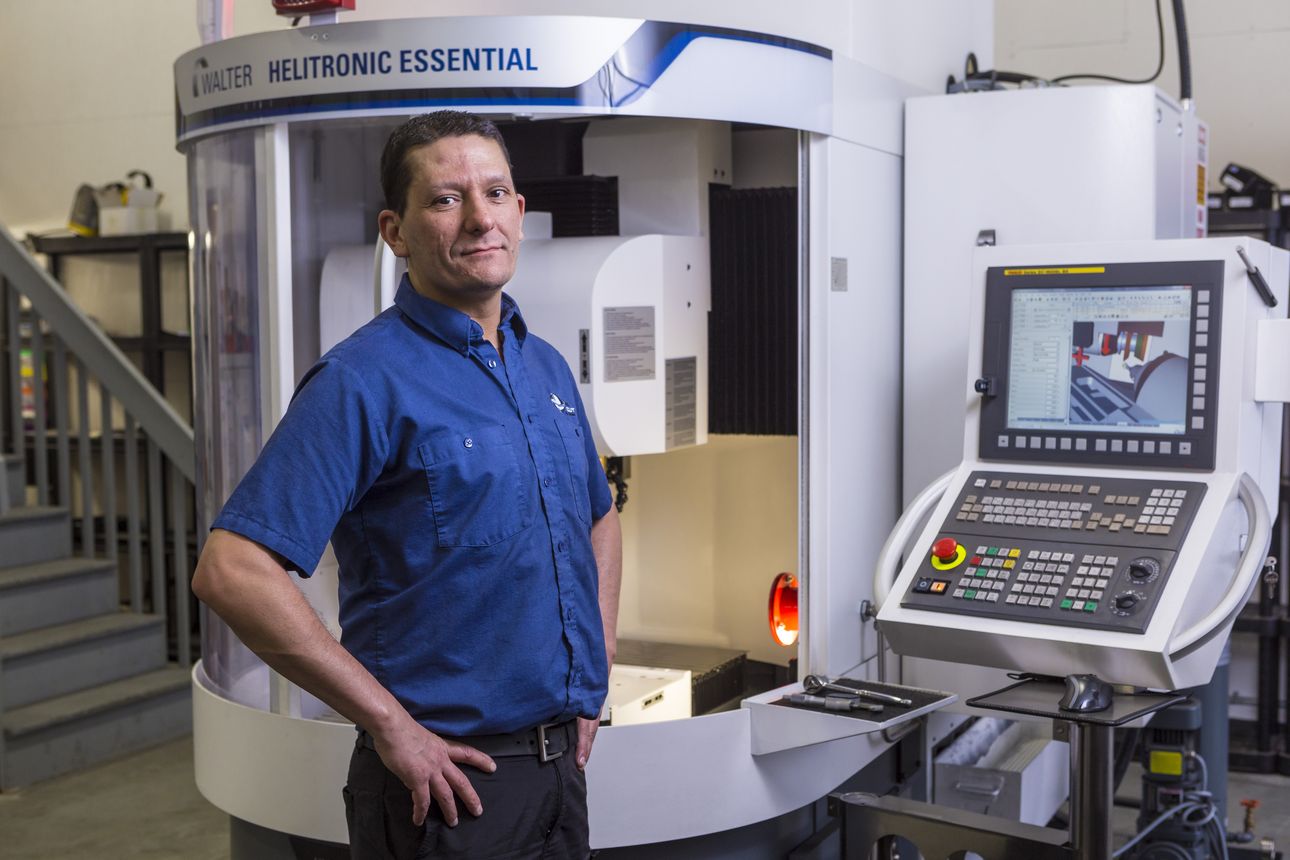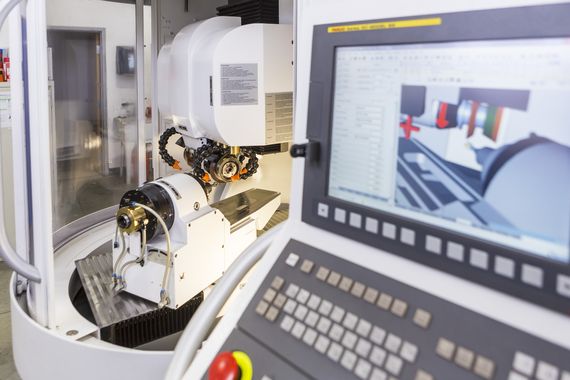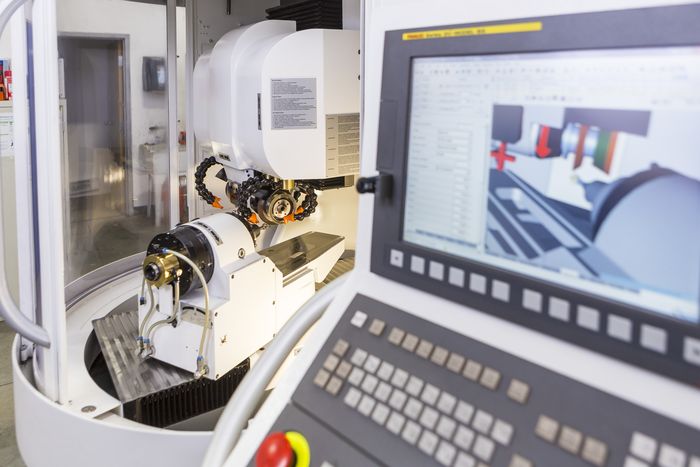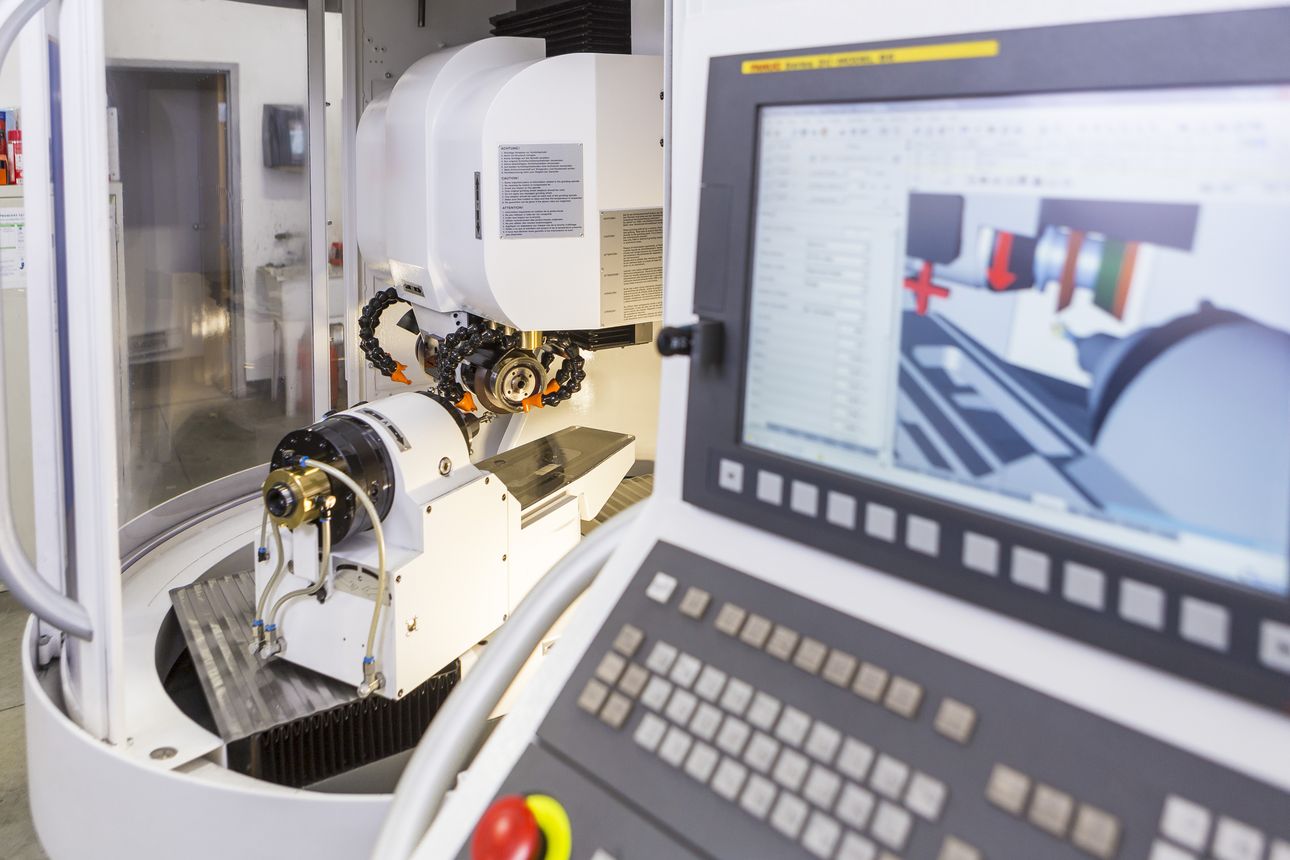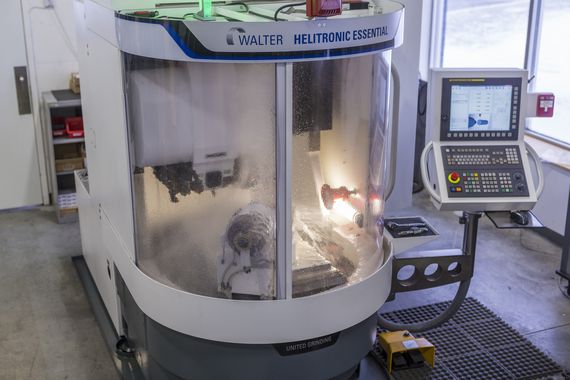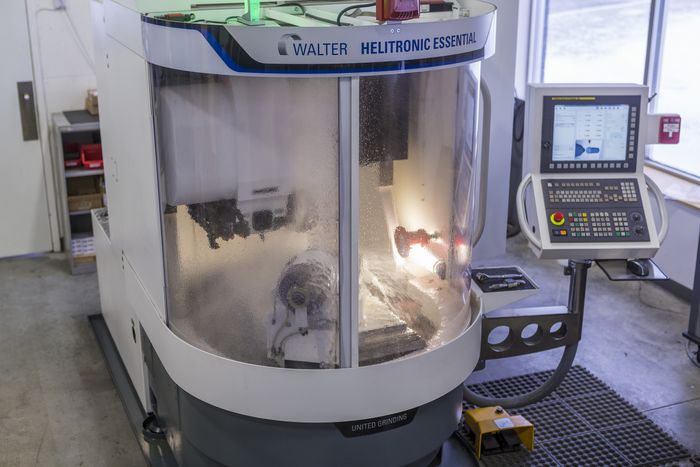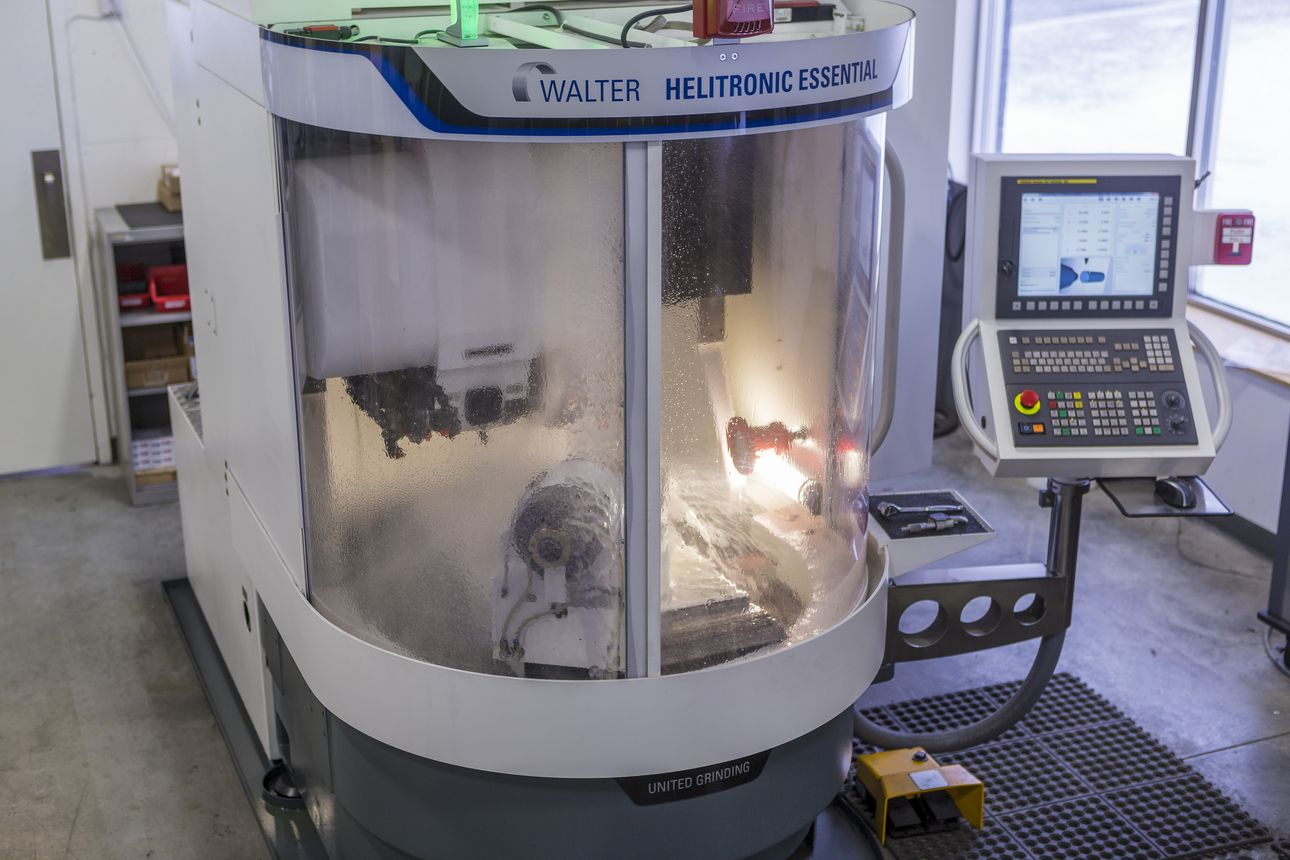Customers Shape Shop’s Tool Grinding Evolution
By consistently recognizing and fulfilling the needs of existing and potential customers, Les Entreprises Précicut Inc., a Quebec tool grinding shop, has evolved beyond manual operations to those done with the industry’s most advanced CNC grinding technology. As a result of this evolution, Précicut has catapulted itself from a shop once limited to sharpening only simple tools to one that designs, manufactures and regrinds very complex high-precision standard and specialty metalworking tools made from high-speed steel (HSS) and carbide.
As a young machinist, David Laflamme, founder of Précicut, realized that his native Quebec City lacked high-quality metalworking tool regrinding services. Accordingly, in 2005 he started Précicut in the basement of his home with one manual tool grinder. As word of mouth from satisfied customers spurred his business’s growth, he moved from his basement to his garage and hired the company’s first employees. In 2010, Précicut again moved – to an industrial park location – and added more manual machines.
Although he founded the shop to provide resharpening services for metalworking tools, Laflamme said he “had to diversify and find more clients from different markets” to continue to expand his business. As a result, he began to design and produce special metalworking tools and provide resharpening services for tools used in the woodworking and food processing industries as well. He reground woodworking tools such as spiral compression bits, and resharpened large circular knives and slicers used in meat cutting equipment.
Précicut has always been able to really push its manual grinders – mainly through innovative machine utilization strategies that help maximize output. Unfortunately, business growth coupled with the increased use of advanced tooling materials and complex tool geometries demanded more than the shop’s manual grinders could deliver. Laflamme soon realized the shop desperately needed CNC tool grinding capability.
Working with John Manley from United Grinding distributor Machine Tool Systems in Toronto, Laflamme purchased a Walter HELITRONIC Essential CNC tool grinder. The 5-axis machine is engineered for flexible, economic regrinding and production of rotationally symmetrical tools from 1 – 100 mm in diameter and up to 255 mm in length.
Walter supplies HELITRONIC Tool Studio software with the machine. Laflamme added that the software’s optional step tool wizard and an advanced license that enables a tool design to be individually modified or adapted facilitate creation of user-defined tools.
Laflamme said he chose the grinder in recognition of Walter’s worldwide reputation for quality and reliability, as well as in response to input from customers who were familiar with the machine’s capabilities. The new grinder immediately helped boost the shop’s carbide tool regrinding business, as customers who had previously used Précicut’s competitors began to call the shop as soon as they heard it had the Walter.
“If I want to stay in business, I have to grind carbide,” added Laflamme. “Most manufacturers believe that a CNC machine will provide more precise and consistent results than manual equipment when grinding carbide. And basically that’s true. A CNC grinder produces perfect, repeatable tool geometries, where manual grinding is very good but not always perfect.”
According to Laflamme, the relatively slower cutting speeds involved when regrinding carbide tools on manual grinders can generate excessive heat. The heat creates micro cracks in the carbide unseen by the naked eye but that can accelerate tool wear.
Laflamme also realized the precision-grinding capabilities of the Walter machine as a way to expand Précicut’s special tool design and manufacturing business sector. His customers often asked for specials such as multi-step drills or cavity tools used mostly in the hydraulic industry.
With its Walter grinder, Précicut now designs, produces and regrinds tools for a variety of high-precision industries including mold and die, defense and aerospace. Even Laflamme’s general machine shop customers now demand high-precision tools because the parts they process feature increasingly tighter tolerances. In addition, the higher cost of complex tools encourages manufacturers to have them reground rather than dispose of them when worn.
Laflamme said he is continually discovering ways to operate the CNC grinder to its full potential. “We can buy the machine, but the experience doesn’t come so quickly or easily” he said, adding that the HELITRONIC Tool Studio software is very flexible and user-friendly and has helped a lot.
“It allows you to grind anything. I started to manufacture cutting tools only a week or two after we got the machine,” commented Laflamme. “The CNC and software together simplify production of special tools. For instance, 30˚- taper end mills are an industry standard. But when a customer needs a 31˚ taper, it too, is very easy to program with the software.”
Laflamme completed United Grinding’s first-time user training for the grinder but has yet to attend advanced training for production of user-defined tools and form tools. Nonetheless, he has minimal problems manufacturing special tools. He believes his experience in manual grinding helps him better understand what needs to be done to create a certain tool.
Design and production of special tools now represents a significant part of Précicut’s business and also helps generate opportunities for new work. Oftentimes, a special tool job is the first contact with a new customer. Clients that have the shop design special tools will usually have it do the regrind work for those tools as well, according to Laflamme.
The shop typically grinds tools in diameters from 3 mm 130 mm and lengths to 150 mm. Most jobs are end mills and special multi-step drills that can perform two or more operations such as chamfering and counterboring, in addition to drilling the holes.
To begin the tool design process, clients often provide Précicut with a drawing of the final machined part, and Laflamme designs tools to produce the required features. The design work involves creating complex tool features such as variable helixes, compound angles and other challenging geometries.
“Often, we have to find the correct rake angle and other specific information,” Laflamme explained. “While on the other hand, some customers know exactly what they want, and we produce the tools right to their specifications. Either way, our customers want perfection, and with the Walter machine, we can give it to them.”
According to Laflamme, CNC grinding technology will not totally replace the shop’s manual equipment. Even if the shop had multiple CNC grinders, it would still keep the manual ones. However, he does plan to add another Walter grinder because he is unable to imagine further growth for the shop with just the one CNC machine.
